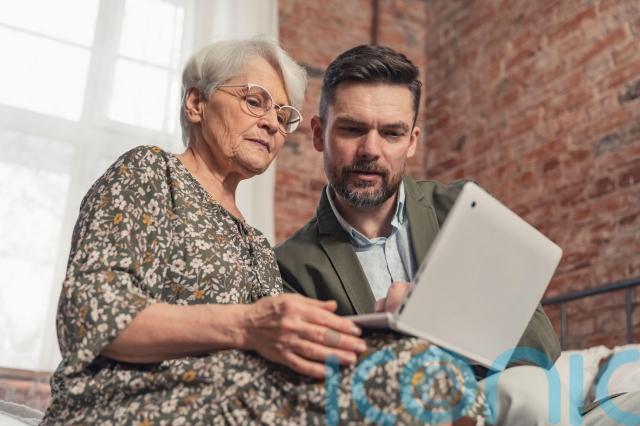
Loneliness Awareness Week which takes place on 9-15 June, was founded by The Marmalade Trust who has had a direct impact on more than 4,000 people through its projects, delivering loneliness training to 55,000 people across the UK.
The awareness week was started in 2017 after the trust realised that people didn’t have much understanding of what loneliness was, says CEO and founder of The Marmalade Trust, Amy Perrin OBE.
“Loneliness is a subjective, unwelcome feeling and a lack of companionship,” Perrin says. “It’s a mismatch between the quality and the quantity of the social relationships we have in comparison to those that we want. It’s not a comfortable feeling but one that is quite a natural human emotion.”

“There are also external factors in our communities such as not having a good provision of public toilets or not having good public transport links – which all can impact older people’s abilities to get out and socialise.
“After lockdown over the past few years there is also an increased fear of going out, as well as the cost of living crisis, which is making things difficult for older people.
“We’re now speaking to people all the time who are having to make really difficult choices between heating and eating and when you’re having to make those kinds of choices, you’re not going to be spending money to go out and socialise.”
How can we prevent loneliness in the older community?
Lowe explains that Age UK is calling for joined-up action across public healthcare sectors to tackle loneliness. However she says there are things that can be done individually and in the community too.
“It can be as simple as making the time to smile at someone or having a conversation,” Lowe says. “When you even go to the supermarkets now, all the checkouts are automated, so those little bits of connection that older people are getting have become less and less. We can decide to become more friendlier and more open to people when out and about.
“Secondly making the time to check in on the older people in our lives can help. Neighbours, family, friends and just calling up and having a chat, sending them a letter or a card, inviting them around for a cup of tea – all of those things can make a really big difference.
With 1.1 million older people (8%) admitting to being embarrassed about feeling lonely according to Age UK, Lowe says she strongly encourages them to reach out to someone.
“The first step is telling someone how you feel. Have that conversation with a family member, friend, GP or you can contact Age UK who will support you and guide you through it,” she says.
What are the signs someone is experiencing loneliness?
Age UK found that 2.1 million older people say they take less care of themselves when they are lonely and Lowe explains there can be noticeable changes in a person’s mood, behaviour, physical or mental health if they are feeling this way.
“Check if someone is more emotional or angry than usual, for example,” she says. “Loneliness can have such a big impact on people’s feelings of confidence and their mood, as well as physical health. Although it isn’t a mental health condition, it is linked to dementia, cognitive decline, depression and anxiety.
Subscribe or register today to discover more from DonegalLive.ie
Buy the e-paper of the Donegal Democrat, Donegal People's Press, Donegal Post and Inish Times here for instant access to Donegal's premier news titles.
Keep up with the latest news from Donegal with our daily newsletter featuring the most important stories of the day delivered to your inbox every evening at 5pm.